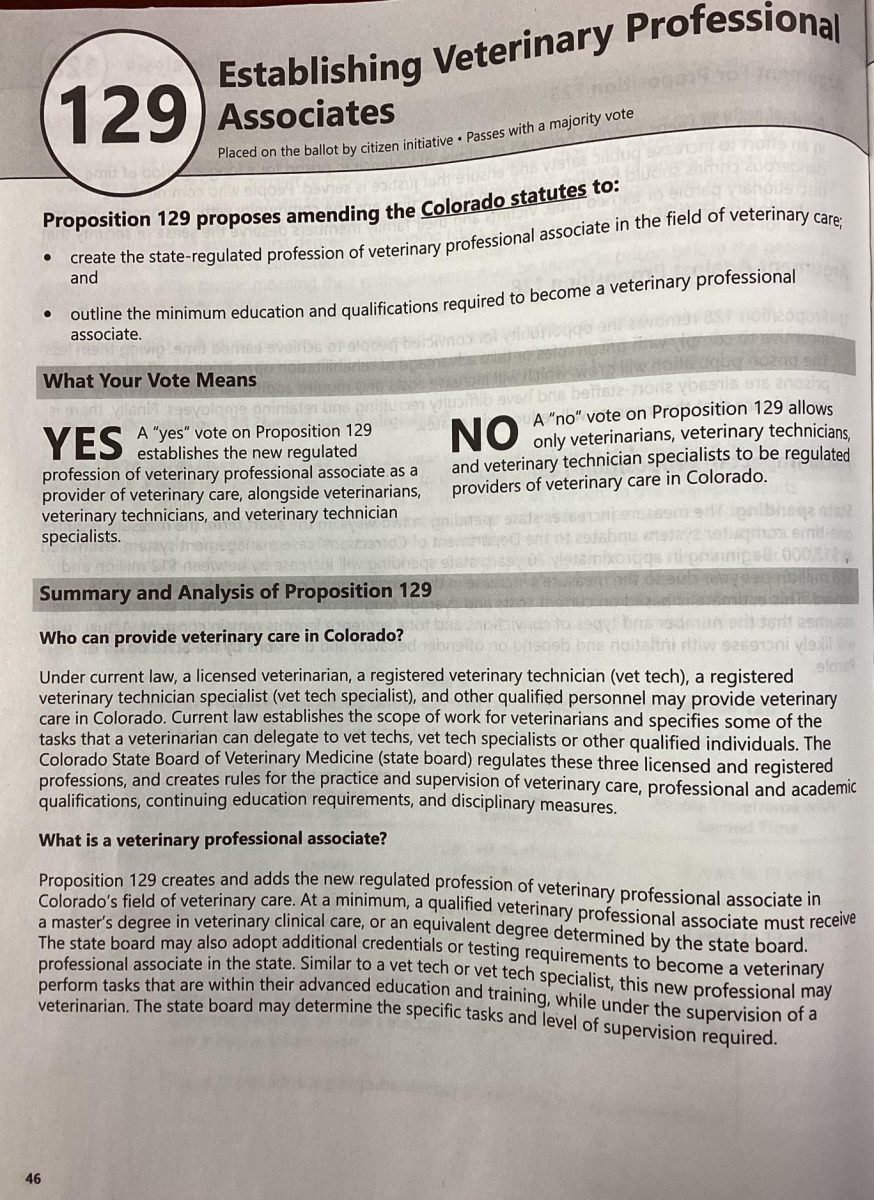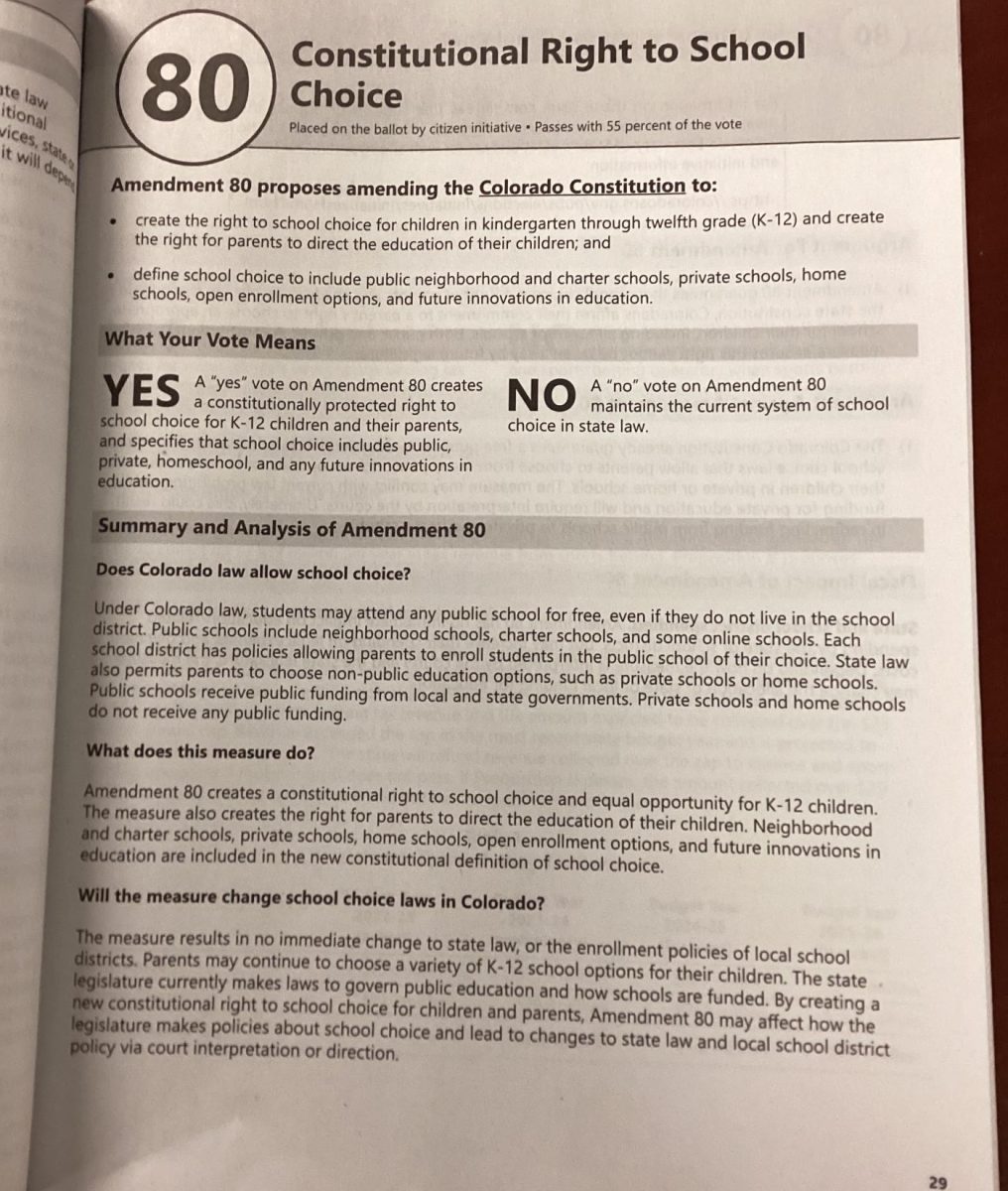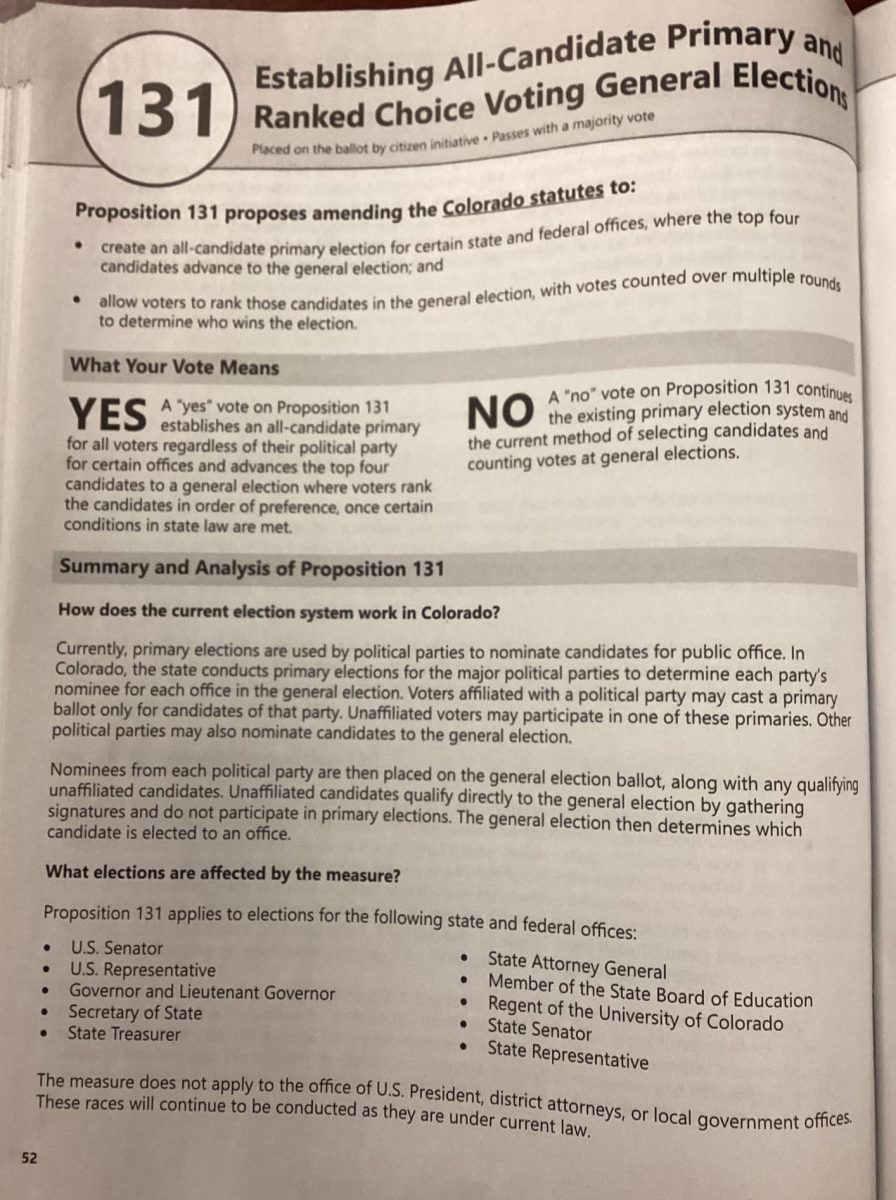As Coloradans, our safety and security are of the utmost importance; Proposition 130 aims to better fund the organizations tasked with maintaining those standards. Sponsored by Advanced Colorado, a conservative policy advocacy organization, it aims to provide continuous training for existing law enforcement officers and more advanced training for new officers. The proposition focuses specifically on current public concerns like officer use of force and restraints. It will also provide essential benefits for law enforcement agencies across the state, with increased wages for law enforcement officers and death benefits for the families of individuals who put their lives on the line for public safety.
Prop. 130 deserves your support; a vote “yes” will enable local law enforcement to improve policing practices, nourish community trust, and promote accountability within the agencies.
Proposition 130 allocates funding specifically to law enforcement training programs. Well-trained officers are better equipped to handle high-tension situations like mental health crises, Domestic Violence calls, and similar circumstances. This training aims to prevent excessive use of force and encourage officers to utilize de-escalation techniques.
Colorado has observed a surge in both violent and property-related crime since COVID-19. The goal of this amendment is to equip officers with the training they need to handle these situations. “Rising crime is a statewide problem which disproportionately impacts communities of color and low-income communities. Conservatives seek to provide excellent training for our law enforcement officers, work to retain more officers, push down the crime rate, and bring safety to our neighborhoods” (Ballotpedia). Comprehensive and continuous training ensures that law enforcement can succeed in their duty to protect and serve our communities while upholding ethical standards. Investing in training not only improves police capabilities but also strengthens the public’s sense of safety.
Improving training programs fosters positive relationships between law enforcement and the communities they are tasked with serving. Officers who are provided with the opportunity to receive rigorous training are more likely to engage in community policing strategies that prioritize open communication and collaboration. When community members observe competent officers actively working to build relationships, it opens them up to trust and cooperation, ultimately leading to safer neighborhoods and a stronger sense of community.
The measure also addresses the issue of officer salaries. By increasing compensation for law enforcement professionals, local agencies can attract, hire, and retain skilled and passionate individuals who are dedicated to serving Colorado’s communities. Higher salaries not only boost morale but also reduce turnover rates, ensuring that officers have the experience necessary to handle challenging situations. A well-compensated police force is better positioned to serve the public effectively, leading to improved safety and community relations.
Another important section of Proposition 130 is the proposed $1 million death benefit for families of officers who lose their lives in the line of duty. Similar to the military, it is also the families who serve our communities by lending their loved ones for the protection of Colorado neighborhoods. Currently, families of law enforcement officers only receive up to 70% of the officer’s salary, generally provided by the Fire and Police Pension Association (FPPA). This benefit would provide them financial security in the event of a loss, and acknowledge the sacrifices made by those who protect us. “Supporters say it would be a meaningful increase for families of fallen officers” (Gorman). By ensuring that families are supported during challenging times, we demonstrate our commitment to those who serve. Additionally, we can begin to build a culture of respect and appreciation for law enforcement.
Adversaries may argue that increasing funding for training and salaries would divert valuable resources from other community needs. “Proposition 130 would impose a significant financial burden on Colorado’s state budget and divert funds from other essential services and programs” (Shea). However, the allocation of funds through Proposition 130 is specifically designed to mold officers capable of collaborating with the community to solve difficult problems like poverty and homelessness. This measure would make that possible without imposing new taxes. It outlines a clear plan for where the money will go, ensuring that these essential investments are prioritized while still addressing other community services.
Colorado Proposition 130 is an important step toward improving law enforcement’s ability to serve our community. By increasing officer salaries, providing comprehensive and continuous training, and offering critical benefits like the $1 million death benefit; we invest in a safer, more accountable future for officers and citizens alike. Coloradans need to come together to endorse Proposition 130, ensuring that Colorado’s local law enforcement agencies have the resources they need to serve and protect effectively. Together we can foster trust and safety in our communities and build a stronger, more resilient Colorado.
___________________________________
Works Cited
“Colorado Proposition 130, Law Enforcement Funding Initiative (2024).”
Ballotpedia,ballotpedia.org/Colorado_Proposition_130,_Law_Enforcement_Funding_Initiative_(2024). Accessed 28 Oct. 2024.
Shea, Sophia. “Proposition 130: Colorado Should Not Invest $350 Million More in Policing |
Colorado Fiscal Institute.” Colorado Fiscal Institute, 24 Sept. 2024, www.coloradofiscal.org/proposition-130-colorado-should-not-invest-350-million-in-policing/blog/.
Gorman, Tony. “Proposition 130: New Funding for Law Enforcement, Explained.”
Colorado Public Radio, 9 Oct. 2024, www.cpr.org/2024/10/09/vg-2024-proposition-130-funding-for-law-enforcement-explainer/.








